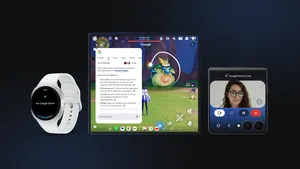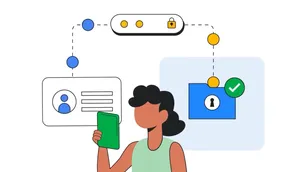Live from Google I/O: Mo’ screens, mo’ goodness
This morning, we kicked off the 6th annual Google I/O developer conference with over 6,000 developers at Moscone Center in San Francisco, 460 I/O Extended sites in 90 countries, and millions of you around the world who tuned in via our livestream. Over the next three days, we’ll be hosting technical sessions, hands-on code labs, and demonstrations of Google's products and partners' technology.
We believe computing is going through one of the most exciting moments in its history: people are increasingly adopting phones, tablets and newer type of devices. And this spread of technology has the potential to make a positive impact in the lives of people around the world—whether it's simply helping you in your daily commute, or connecting you to information that was previously inaccessible.
This is why we focus so much on our two open platforms: Android and Chrome. They enable developers to innovate and reach as many people as possible with their apps and services across multiple devices. Android started as a simple idea to advance open standards on mobile; today it is the world’s leading mobile platform and growing rapidly. Similarly, Chrome launched less than five years ago from an open source project; today it’s the world’s most popular browser.
In line with that vision, we made several announcements today designed to give developers even more tools to build great apps on Android and Chrome. We also shared new innovations from across Google meant to help make life just a little easier for you, including improvements in search, communications, photos, and maps.
Here’s a quick look at some of the announcements we made at I/O:
- Android & Google Play: In addition to new developer tools, we unveiled Google Play Music All Access, a monthly music subscription service with access to millions of songs that joins our music store and locker; and the Google Play game services with real-time multiplayer and leaderboards. Also, coming next month to Google Play is a special Samsung Galaxy S4, which brings together cutting edge hardware from Samsung with Google’s latest software and services—including the user experience that ships with our popular Nexus devices.
- Chrome: With over 750 million active users on Chrome, we’re now focused on bringing to mobile the speed, simplicity and security improvements that we’ve seen on the desktop. To that end, today we previewed next-generation video codec VP9 for faster video-streaming performance; the requestAutocomplete API for faster payments; and Chrome Experiments such as "A Journey Through Middle Earth" and Racer to demonstrate the ability to create immersive mobile experiences not possible in years past.
- Google+: We unveiled the newly designed Google+, which helps you easily explore content as well dramatically improve your online photo experience to give you crisp, beautiful photos—without the work! We also upgraded Google+ Hangouts—our popular group video application—to help bring all of your real-life conversations online, across any device or platform, and with groups of up to 10 friends.
- Search: Search has evolved considerably in recent years: it can now have a real conversation with you, and even make your day a bit smoother by predicting information you might need. Today we added the ability to set reminders by voice and we previewed “spoken answers” on laptops and desktops in Chrome—meaning you can ask Google a question and it will speak the answer back to you.
- Maps: Today we previewed the next generation of Google Maps, which gets rid of any clutter in order to put your individual experience and exploration front and center. Each time you click or search, our technology draws you a tailored map that highlights the information you need. From design to directions, the new Google Maps is smarter and more useful.
Technology can have a profound, positive impact on the daily lives of billions of people. But we can’t do this alone—developers play a crucial role. I/O is our chance to come together and thank you for everything you do.







